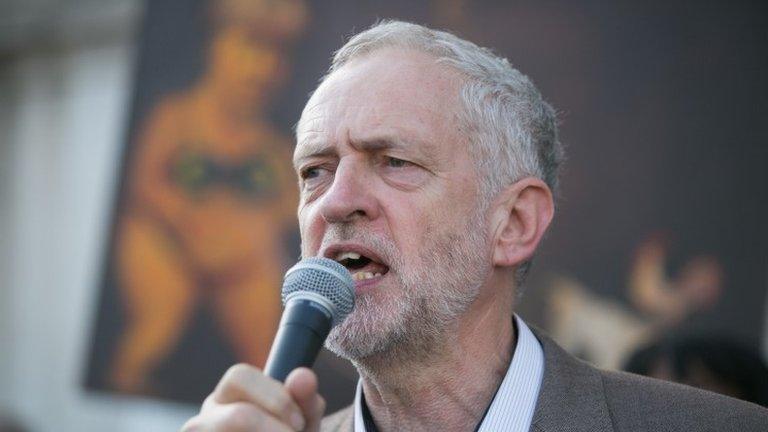Labour rivals clash over spending and welfare in BBC debate
- Published
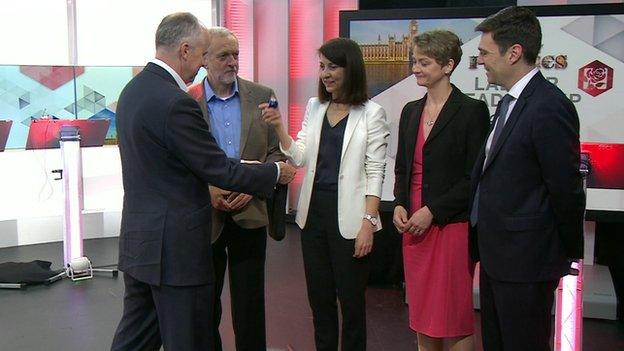
Labour hustings are being staged all over the country
Labour's four leadership contenders have clashed over public spending, welfare cuts and what they would do to make the party electable.
In a BBC Sunday Politics debate, Yvette Cooper and Andy Burnham disagreed over whether the Labour government spent too much before the 2007 banking crash.
Liz Kendall said Blairite had become a "term of abuse" in Labour and accused Jeremy Corbyn of "fantasy" politics.
Mr Corbyn said he would like to see a top rate of income tax above 50p.
The Labour Party is holding a series of hustings around the country in the run-up to September's leadership election.
The latest debate comes amid suggestions that Mr Corbyn, the veteran left wing MP who was a late entry in the race, is gaining ground, having won the support of a growing number of local party associations and the backing of the Unite union.
The other candidates were asked by host Andrew Neil whether they would offer Mr Corbyn a role in their shadow cabinet if he performed strongly in the contest.
'Broad church'
Mr Burnham said he was "open" to the idea given that Mr Corbyn had said some "important things" during the campaign, although he said he would not get the key job of shadow chancellor.
Ms Cooper would not be drawn on her intentions. Ms Kendall - who is running from the right of the party - appeared to rule it out, likening Mr Corbyn's economic politics to those of the Greek government.
"I don't think Jeremy and my politics are anything like the same," she said.
"I think there is a challenge for centre-left parties across Europe. On the one hand. avoiding the ever-increasing austerity that sees people left behind and the kind of fantasy politics of Syriza which would see us out of government for a generation."
Mr Corbyn said Labour was a "broad church" but he was adamant that the "appalling" policies of austerity which had become the "orthodoxy" across Europe had to be challenged.
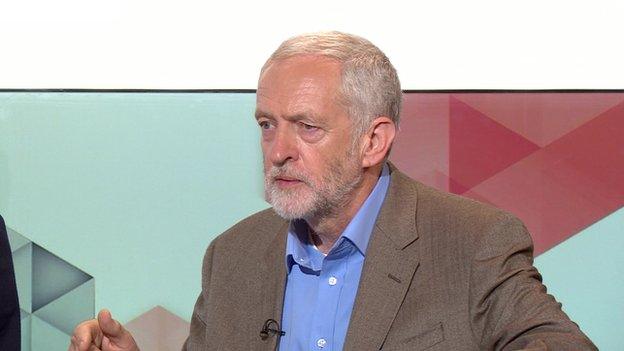
Jeremy Corbyn said he would "close down" onshore and offshore tax havens under UK jurisdiction
A Labour government should ideally restrict borrowing to funding capital investment rather than day-to-day spending, said Mr Corbyn, but he would not set an "arbitrary" date for balancing the books and would focus on raising taxes rather than cutting spending.
A Labour manifesto pledge to raise the top rate of income tax to 50p should be maintained, he said, to raise an estimated £5bn a year.
And asked whether the highest-earners should pay even more in income tax, he replied "yes, of course". He added: "Ultimately you may need to go higher but I am not putting a figure on that."
Tougher rules on tax evasion and avoidance could raise £50bn, he suggested, by "closing down" tax havens in overseas territories and crown dependencies and requiring British firms which have moved their headquarters out of the country to pay tax at UK rates.
"We have a culture of tax evasion and avoidance by big business in Britain and we need to bear down on those businesses."
Ms Kendall said Labour had to show it had changed its views on welfare, both in principle and practice, by not opposing government plans to lower the benefits cap. She also suggested she would only reverse proposed curbs on child tax credits - which would see support removed for the third and subsequent children - if it could be shown how it would be paid for.
'Lost discipline'
Mr Burnham and Ms Cooper clashed over the last Labour government's economic legacy and whether it should have been running a deficit in 2007, shortly before the financial crash, when both were in the cabinet.
Mr Burnham has apologised for this, saying Labour should have been balancing the books at that time, which it did each year between 1998 and 2001, after more than a decade of strong economic growth.
"We lost that discipline at the beginning of our third term and I know that because I was chief secretary when Gordon Brown and Alistair Darling asked me to start bringing the deficit down," he said.
"We began to do that but the ink was barely dry on that spending review when the financial crash happened."
But Ms Cooper said the 2007 deficit was partly due to misleading tax yield forecasts and debt as a share of GDP was falling at the time.
By apologising, she said Mr Burnham was "falling into George Osborne's trap" and allowing him to "blame Labour's public spending" for the subsequent financial problems.
"The point Andy and others have made is that somehow what was happening with public spending made us too weak to deal with the financial crisis when it happened," she said.
"I think it is wrong to say, as Andy has done that we should apologise for public spending on our NHS, on Sure Start, on our public services. That did not cause the financial crisis and we should take on the Tory myths."
- Published12 September 2015
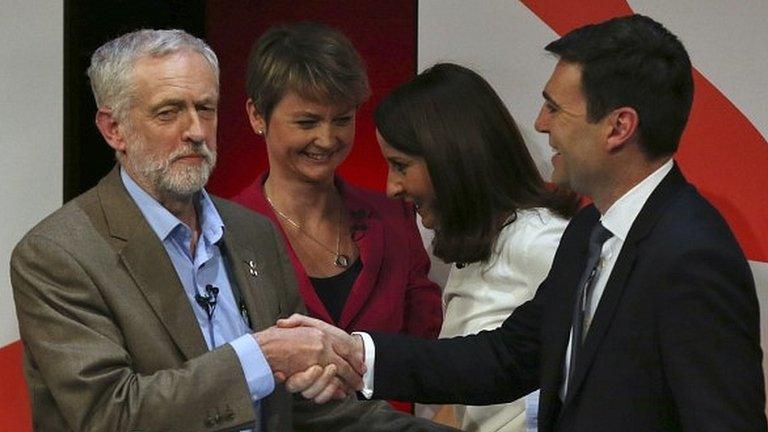
- Published19 July 2015
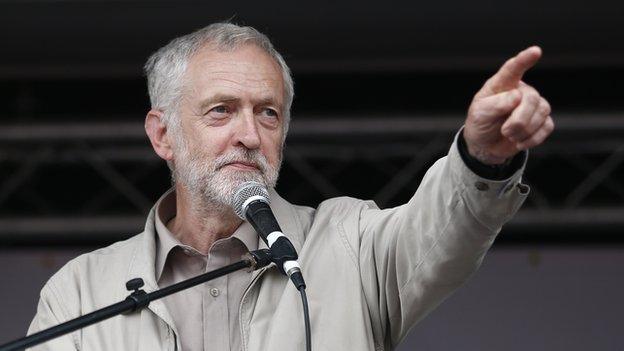
- Published5 July 2015
